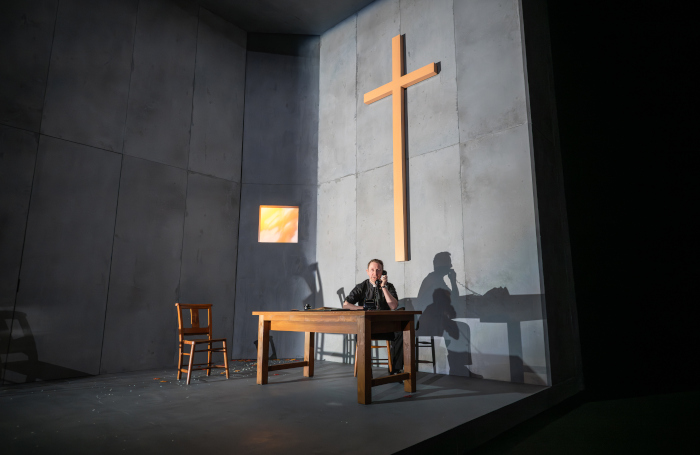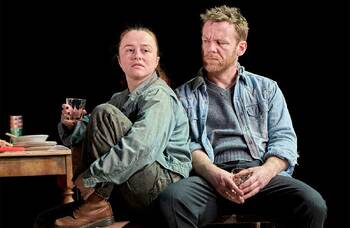Laughing Boy review
Janie Dee’s shattering central performance holds together this hard-hitting, soft-hearted polemic
In 2013, 18-year-old Connor Sparrowhawk died in an NHS assessment and treatment unit. The young man, who was autistic and epileptic, and had a learning disability, drowned during a seizure while bathing unattended. Following Connor’s death, his mother Sara Ryan – an autism specialist at the University of Oxford – spearheaded a social media campaign, while simultaneously advocating for an inquest. It would be another two years before that inquest finally found that Connor’s death had been preventable, and that a litany of institutional failings had contributed to it.
Directed and adapted for the stage by Stephen Unwin, this moving, sentimental, often enraging story can feel sluggish and overstuffed, but it packs in a lot of material. Informative descriptions of the convoluted legal processes in which Ryan became embroiled are set against joyful recollections of Connor’s life – his boundless enthusiasm, quirky humour and love of buses. Unwin’s staging is deft, carefully balancing the procession of grim, galling details against humanising, light-hearted moments. The cast has evidently worked to develop a deep, affectionate rapport, constantly sharing supportive gestures and playful interactions.
Heading the ensemble, Janie Dee gives an impeccably pitched performance as Ryan, maintaining a calm, restrained composure that cracks only under the greatest stress, revealing the tremendous depth of her grief and anger. Alfie Friedman provides a sensitive, well-judged depiction of Connor, conveying an effusive personality, infectious humour and sudden, explosive outbursts of frustration.
Continues...
The remaining cast members work hard in multiple roles. Lee Braithwaite makes a host of characters distinct with diverse, believable accents and clear body language, while Molly Osborne portrays the doctor in charge of Connor’s inadequate care as monstrously, callously indifferent, staring blankly at her phone during consultations, offering only a condescending smirk when questioned directly.
Video clips, designed by Matt Powell, reflect the bewildering oversaturation of information that Ryan’s family faces. We glimpse a collage of grainy photos, redacted emails and textured backdrops that suggest some of the locations where the action takes place – blurry London streets shot from a moving bus, peeling paintwork in the underfunded unit where Connor spent his last days. This flurry of confused images is projected on to the bare, concave wall of Simon Higlett’s sparse set, a spartan expanse of off-white flooring dotted with a few wooden chairs.
Though much of Ryan’s ire is directed, appropriately, at the institution that so grossly failed her son, the play methodically describes numerous factors that compound the challenges of caring for people with complex needs: the inaccessibility of adequate services, lack of transparent communication, and an absence of viable community-based alternatives. Ultimately, it succeeds both as a tribute to Connor’s family, and as a galvanising call for deeper compassion and greater support.
More Reviews
More Reviews
Recommended for you
Most Read
Across The Stage this weekYour subscription helps ensure our journalism can continue
Invest in The Stage today with a subscription starting at just £7.99












